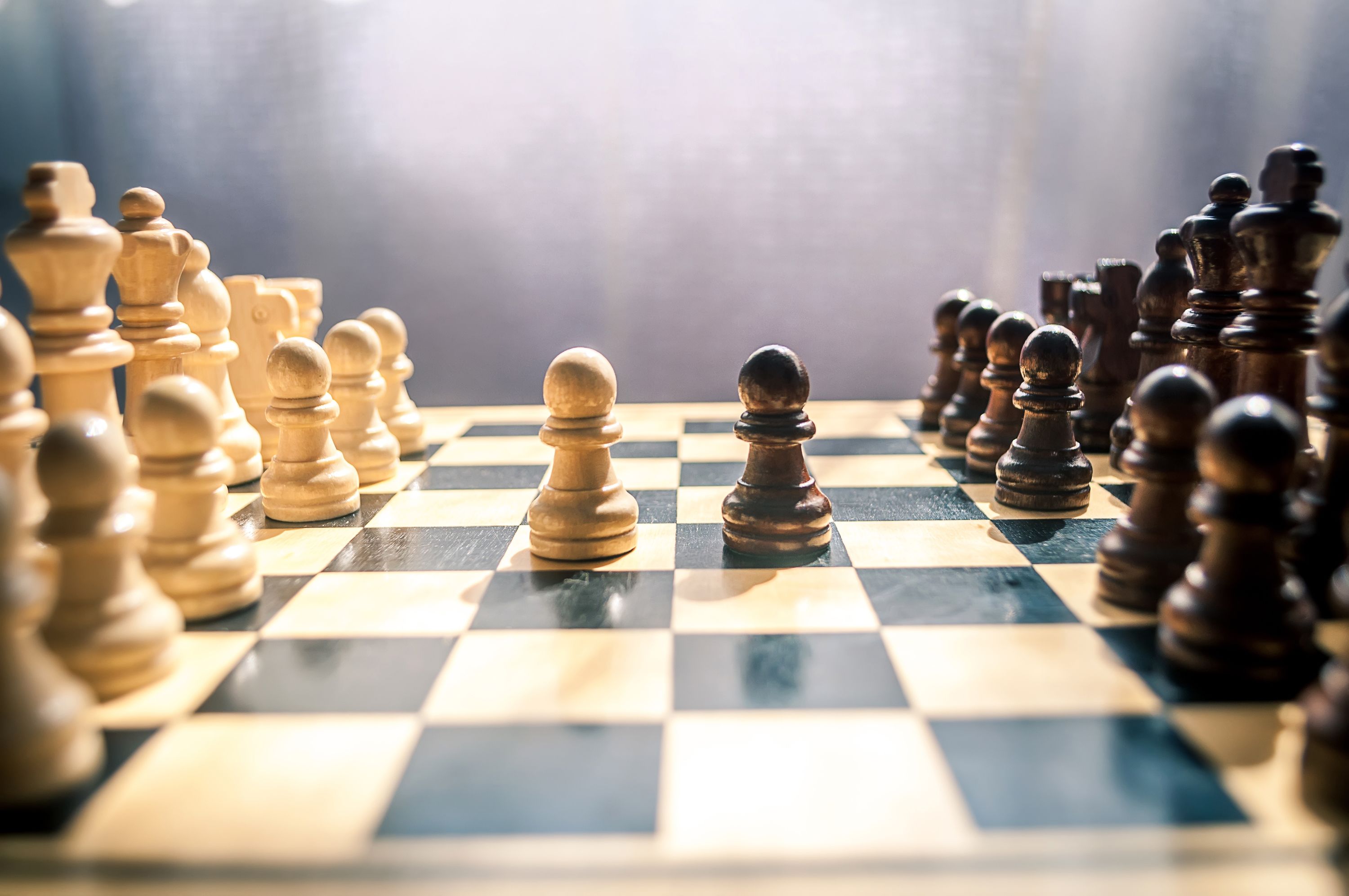Why You Need To Play Chess: The Benefits of Taking Part In This Classic Pundit Difficulty
Chess is even more than a basic video game; it offers as an extensive psychological exercise that develops numerous cognitive abilities. Players take part in critical reasoning and establish problem-solving capabilities, which can have long lasting benefits in daily life. The technique needed for renovation promotes perseverance and resilience. Yet, real significance of chess exists not just in its intellectual needs yet in the connections it fosters within a community. Exploring these dimensions reveals much regarding why chess remains timeless.
Enhancing Cognitive Abilities
Playing chess significantly improves cognitive skills, making it a useful task for individuals of every ages. The video game demands critical thinking and foresight, needing gamers to anticipate their opponent's moves while creating a winning method. This psychological exercise develops emphasis and focus, important elements of cognitive function.

Moreover, chess encourages imagination, prompting gamers to discover cutting-edge techniques and unusual approaches to the game. As they browse the chessboard, people establish perseverance and durability, essential features for cognitive growth. In general, the multifaceted cognitive advantages of chess make it an enhancing search, advertising long-lasting imagination and intellectual interaction.
Enhancing Problem-Solving Talents
Many research studies have revealed that engaging in chess can considerably increase problem-solving capacities. The game calls for players to analyze complicated positions and prepare for the opponent's actions, promoting vital thinking abilities. As they navigate different scenarios, chess gamers develop the capacity to evaluate numerous outcomes and make strategic choices under pressure. This procedure enhances their capability to approach real-life troubles with a structured state of mind.
Moreover, chess advertises the identification of patterns and the application of logical thinking, skills that are crucial in efficient analytical. Players find out to evaluate threats and rewards, improving their judgment in unsure circumstances. The recurring nature of chess play enhances these skills, allowing people to transfer their boosted problem-solving abilities to scholastic and specialist contexts. Ultimately, chess acts as a useful device for anyone seeking to sharpen their analytical skills and improve their overall cognitive functioning in challenging situations.
Growing Perseverance and Technique
While involving in chess can be an exciting experience, it also calls for a significant degree of perseverance and technique. Gamers need to find out to very carefully think about each relocation, evaluating potential outcomes and approaches. This thoughtful strategy cultivates a mindset that values lasting success over prompt gratification. In chess, hasty choices commonly cause undesirable consequences, enhancing the value of taking one's time to evaluate the board and anticipate a challenger's actions.

Discipline is additional grown with regular method and study. Gamers typically dedicate hours to enhancing their abilities, studying techniques, and evaluating previous games. This commitment to mastering the game instills a sense of duty and perseverance, necessary qualities that expand beyond the chessboard. Inevitably, the mix of persistence and discipline not only boosts a player's chess capabilities but likewise adds to personal development, equipping individuals with vital tools for steering obstacles in various elements of life.
Promoting Creativity and Imagination

Strategizing steps includes not simply reasoning yet additionally the ability to anticipate an opponent's actions, urging gamers to visualize multiple pathways and options. As players try out various methods, they learn to innovate and adapt, improving their innovative analytic abilities.
The game's intricacy welcomes gamers to check out unusual concepts and techniques, leading to personal styles of play - Chess. This exploration nurtures a feeling click this site of creative expression, as each gamer crafts their very own strategy to difficulties on the board. Ultimately, chess becomes a canvas for creative thinking, permitting individuals to express their one-of-a-kind viewpoints while establishing their creative abilities
Building Social Connections and Community
Playing chess supplies chances for individuals to network via competitions and local chess clubs. These atmospheres foster links among players, developing a feeling of neighborhood centered around a shared interest. Engaging in these tasks not just enhances abilities but additionally develops long-term connections.
Networking With Tournaments
When individuals engage in chess competitions, they commonly find themselves engaged in a vivid community of like-minded individuals. These occasions give a superb platform for imp source gamers to create links, share techniques, and commemorate their passion for the game. Involving in friendly competition promotes sociability, as players from diverse histories come with each other to challenge each other. Networking chances abound, with numerous individuals creating lasting friendships that prolong past the chessboard. In addition, these tournaments commonly bring in sponsors and chess enthusiasts, even more improving the possibility for professional connections. As gamers participate in conversations regarding strategies and experiences, they build a network that can cause future cooperations and possibilities within the chess globe and beyond.
Local Chess Clubs

Giving an Enjoyable and Involving Obstacle
Chess offers a distinctly boosting experience that mesmerizes gamers of every ages, as it integrates tactical thinking with the excitement of competition. This classic game offers an engaging challenge, urging individuals to think seriously and creatively. Each match unravels as a battle of wits, where gamers should expect their opponent's actions while creating their own approaches.
The intellectual interaction chess provides is matched by its capacity to amuse. More Bonuses Players usually discover themselves submersed in the game, shedding track of time as they browse complex settings and tactical dilemmas (Chess). This increased emphasis fosters a feeling of success, particularly when a tough move causes victory
Chess advertises social interaction, permitting gamers to bond over shared experiences and difficulties. The video game's endless variations ensure that no 2 sessions are alike, keeping participants passionate to refine their abilities and approaches. This dynamic blend of challenge and pleasure makes chess an alluring search.
Regularly Asked Inquiries
Can Chess Be Played Online or Only face to face?
Chess can be played both online and personally. Online platforms provide players the benefit of contending against opponents worldwide, while in-person games foster social interaction and physical presence, enriching the overall experience.
What Age Is Best to Start Knowing Chess?
Experts suggest that children can start finding out chess as very early as age 5 or six. At this age, they can grasp basic concepts, enhancing cognitive skills while fostering a love for the game that lasts a lifetime.
Exist Chess Tournaments for Beginners?
Yes, there are chess tournaments particularly made for beginners. These occasions give a supportive setting for newbie gamers to gain experience, enhance their skills, and take pleasure in the affordable spirit of chess without encountering advanced challengers.
The length of time Does It Require To End Up Being Skillful at Chess?
Ending up being proficient at chess typically calls for regular method over numerous months to years. Aspects such as individual devotion, prior experience, and research study of techniques greatly influence the moment needed to reach a skilled degree.
What Resources Are Available for Discovering Chess Strategies?
Many sources exist for learning chess methods, consisting of online tutorials, books by distinguished writers, chess applications, and interactive sites. Lots of gamers also take advantage of joining neighborhood clubs or joining online forums for real-time insights.